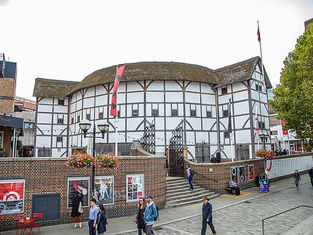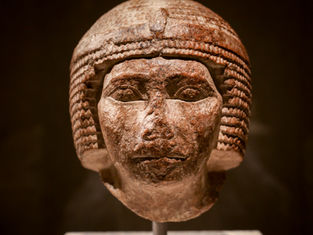top of page
Articles


Djokovic, the Australian Open, idiots and Cov-idiots—what would Nietzsche say?
Had any of the players who competed for the inaugural tennis grand slam of 2022 in Melbourne been complete (i.e. sovereign, self-governing) individuals, they would have declared the ‘AO’ boycott before the tournament started.[1][2] Not only because of Djokovic, but also because of Renata Voráčová. Not only out of the camaraderie with the two fellow members of the traveling circus which professional tennis (along with all other professional ‘spectator’ sports) has become, cou

Dmitri Safronov
15 min read


Notre-Dame de Paris: Pyrolysis Hypothesis and Fire Safety in Historical Buildings
On Monday 15 April, a fire broke out in the Notre-Dame de Paris. Believers and tourists were invited to leave the cathedral immediately. A race against time was launched which would last more than fifteen hours, defying all human bravery to save the Notre-Dame. Thousands of people gathered around the cathedral this evening to reflect, pray, and witness this catastrophe which none had thought possible to an eight-century old lady that had accompanied people in their joys and s

Rémi Desalbres
6 min read


A Note on the Controversy concerning Eric Gill
On 12 January 2022, there was an attempt to destroy, or at least damage, the statue of Prospero and Ariel installed outside the BBC’s...

Peter Brooke
25 min read


The Claim of Judicial Finality in the United States: A Popular Theory that Lacks Evidence
In law schools as well as political science and history classes, students are generally taught that when the Supreme Court decides a constitutional issue it delivers the final word unless the Court changes its position. That is the prominent theory. In 1953, Justice Robert Jackson promoted the doctrine of judicial finality by making a statement that is often cited: ‘We are not final because we are infallible, but we are infallible only because we are final’.[1] Perhaps a clev

Louis Fisher
34 min read


Why would an Atheist Write a Commentary on the Bible?
I became an atheist at the age of eight. After one of my Hebrew-school teachers devoted a 90-minute class to recounting her experiences...

Matthew H Kramer
9 min read


Mary Wollstonecraft’s Political Philosophy: In Conversation with Sylvana Tomaselli
Sylvana Tomaselli is a historian and lecturer in political philosophy at the University of Cambridge, where she is a fellow of St John’s...

Maria Stella Sendas Mendes
10 min read


All the Law’s a Stage! Shakespearean Insights and their Resonance Today
Shakespeare understood much about the role of law in society, possibly thanks to his direct links with London’s Inns of Court. The Inns...

The Rt Hon Lady Arden
26 min read


John Hume: The Achievement and Limitations of a Man in War
I have not read all the tributes that have been made to John Hume since his death in 2020, but I doubt if many—perhaps any—of them have got to the heart of his real achievement, which was twofold. On the one hand, he prevented a settlement of Northern Ireland’s constitutional status that seemed to be a real possibility in the late seventies and early eighties on what might have been called ‘Unionist’ principles (though it could have resulted in the end, or radical decline, of

Peter Brooke
20 min read


The Visit of Czarevitch Nicholas Alexandrovitch to Lahore, January 1891
The below is adapted from Fakir Aijazuddin's 2021 book Imperial Curiosity: Early Views of Pakistan, 1845-1906 . Introduction The nineteenth century was a period of imperialist expansion. Powerful countries in Europe like Great Britain, Germany, and Russia recognized the potential of countries in the near and far East—potential for travel, for tourism, for the advancement of scientific knowledge, for trade, and perhaps most important of all, resources with which to fuel thei

Fakir Aijazuddin
19 min read


John Morley and India: Anti-Imperialist Thought in Practice
The recent upsurge of interest in the history of the British Empire has produced a wealth of literature that often presents empire and imperialism in a hegemonic light, couched in a dichotomy that sets the ‘oppressor’ against the ‘oppressed’, the ‘coloniser’ against the ‘colonised’, and so on. Underpinning fashionable postcolonial discourse, this binary terminology can obscure important nuances of political thought in its proper historical context, such as how prominent figur

Matthew Fisher
31 min read


The Sustaining Cosmos
There are more things in heaven and earth, Horatio, Than are dreamt of in your philosophy. —William Shakespeare, Hamlet (1.5.167–68),...
Jonathan Jones
7 min read


Who Am I?
One of the problems of having lived a long life is that it brings home to one the many different identities one has occupied in the...

Edward Lucie-Smith
4 min read


Traversing the Art Legal System in Early Modern Venice: The Case of Antonio Floriano’s Mappamondo
The application of print privilege (pre-copyright) legislation to Venetian cartography came about by chance.[1] While the Venetian Republic was not the first state in Europe to construct a system of printing privileges, it was the earliest to grant limited monopolies for cartography and artwork. Intended originally for bestowing printed book privileges, the wording of the sixteenth century legislation and printing culture of Early Modern Venice enabled the expansion of the pr

Sarah Alexis Rabinowe
26 min read


Americanitis: Architecture, Mass Media, White Supremacy
The origins and definition of the word ‘Americanitis’ are opaque at best. It is generally believed to have appeared in medical journals of the late nineteenth century, describing a particular nervous ailment found in the inhabitants of the United States of America. Thought to cause disease, heart attack, nervous exhaustion, and even insanity, Americanitis was seen as a serious threat to the American public. In fact, in 1925, Time Magazine reported that Americanitis was respo

Nicolas Canal Tinius
15 min read


The Space Race and Its Discontents: Hannah Arendt on Space, 1951-63
Introduction Arendt’s account of modernity and The Human Condition (1958)[1] Opening the final section of The Human Condition...

Clare Francis
20 min read


Does the Concept of ‘Spiritual Resistance’ Add to our Understanding of Jewish Life in the Ghettos?
In his seminal 1961 work The Destruction of the European Jews , Raul Hilberg proposed a thesis that sought to explain a perceived lack of...

Nathaniel Rachman
23 min read


Elite Overproduction: An Inside Perspective
1 To become an administrative official in imperial China necessitated following a burdensome path from an early age. To begin with, a...

Jakob Gomolka
10 min read


The Future of the Museum of London: In Conversation with Sharon Ament
Sharon Ament is the Director of the Museum of London, and inspiring passion in the capital and its museum is her goal. Sharon joined the...

Joseph Court
10 min read


Rethinking Pharaonic Government: Constitutional Lessons from Ancient Egypt
Conventional wisdom tells us that the first civilisation to be governed in a manner comparable to our own was Ancient Greece—the world’s first democracy.[1] Such discourse has contributed to popular belief that earlier civilisations, of which Egypt is probably the best-known example, might be interesting in myriad ways but surely have little to offer scholars of modern government. Egypt, according to established narrative, was an absolute monarchy, where Pharaoh did as he ple

Alexandre Loktionov
15 min read


Splendid Isolation or Fish out of Water? Fishing, Brexit, and the Iconography of a Maritime Nation
1. The fish are alright Historically and presently, the United Kingdom has identified and presented itself as a maritime nation.[1] Fisheries, historically a significant source of employment, cultural identity, and economic output, are a vital component of the UK’s seafaring character. Amidst the decline of other British coastal industries, fishing, also in a state of ‘managed decline’,[2] is perhaps the UK’s final remaining material link to this maritime heritage. Our ar

Aadil Siddiqi and Nathan Davies
19 min read


‘A heap of broken images’: The Possibility of Connection in TS Eliot’s The Waste Land
Eliot’s work is filled—especially the poetry—with masks, role-playing, and multiple voices. Yet it is saturated everywhere, too, with...
Asseel Darwish
15 min read


Famous Lost Artworks
Modern commerce takes place at supersonic speed. It therefore surprises many that most of the world’s traded goods are still, at some...

Serhan Handani
8 min read


The Cultural Logic of Statues
A statue tumbles and, with an almighty splash, sinks below the water. Those responsible cheer with joy. Onlookers are captured in a range of emotions: confusion, rage, wonder. What is taking place? Is this an anti-historical act of violent vandalism, or the liberating removal of a relic of the colonial era, an enduring reminder of oppression? When Black Lives Matter protesters in Bristol toppled the statue of the merchant and slave trader Edward Colston in June 2020, it was

Jack Graveney
12 min read


Leonardo the Myth alongside Leonardo the Architect
Leonardo da Vinci is a constant of the Western cultural tradition. We grow up with a vague sense of Leonardo’s achievements, knowing him...

Ruairi Smith
10 min read
bottom of page

